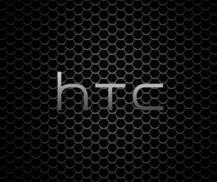Apple And HTC Cease Hostilities, Agree Patent Deal

“Thermonuclear war” against Android has been postponed
Apple and HTC will not go to court over patent infringement for the next ten years, as part of a settlement which will require the Taiwanese company to pay licensing fees for the use of Apple’s patents.
A few years ago, HTC was considered to be an Android success story, but the company has been steadily losing its market share, threatened by competition such as Samsung, Apple and Chinese manufacturer ZTE.
News of the deal raised the value of HTC shares, and HTC said it would help the company concentrate on designing innovative products.
Some analysts have suggested that Apple is reducing the number of legal engagements to focus on the ultimate showdown against its main competitor – Samsung.
Peace treaty
The hostilities between two companies began in March 2010, when Apple accused HTC of infringing its patents around the ‘bounce-back’ document scrolling method and data detection. At the same time the Taiwanese manufacturer claimed Apple was using its 4G patents without a licence.
 After a series of skirmishes in several courts around the world, the competitors have now agreed a settlement, the first for Apple in a long while. The ten-year licensing deal covers all current and future patents owned by both companies and dismisses all current lawsuits between them.
After a series of skirmishes in several courts around the world, the competitors have now agreed a settlement, the first for Apple in a long while. The ten-year licensing deal covers all current and future patents owned by both companies and dismisses all current lawsuits between them.
The agreement offers HTC access to technologies developed by Apple that are off-limits to its rivals, but analysts warn that the royalty payments could put pressure on its profit margins. HTC has denied that the payments could damage its bottom line, saying they would have “no material impact on the finances of the company”.
It was HTC that launched the settlement talks, and according to Wall Street Journal, the company was “relieved” to hear of the outcome. Last year, the US International Trade Commission ruled that HTC infringed on Apple patents, while a more recent case brought by HTC against Apple was dismissed.
Lately, the Taiwanese company has been failing to capture the imagination of the customers with its smartphones. This year, its market share comes down to just four percent, down from 10.3 percent a year earlier, according to research by IDC.
“HTC is pleased to have resolved its dispute with Apple, so HTC can focus on innovation instead of litigation,” said CEO Peter Chou in a statement.
Apple has previously agreed patent licensing deals with Nokia and Microsoft but remains engaged in a variety of courts around the world against Android smartphone and tablet manufacturers such as Samsung and Motorola Mobility.
Following the announcement of the settlement, HTC shares rose by almost 7 percent to 241.5 New Taiwan dollars (£5.2). “We suggest that investors refrain from chasing [HTC] based purely on the settlement,” Deutsche Bank analysts William Yang and Ivy Lee wrote in a research note seen by Wall Street Journal. “HTC’s near-term developments remain uninspiring.”
The company hopes to rejuvenate its global fortunes this quarter with the introduction of the 8X and 8S models, powered by Microsoft’s Windows Phone 8.
How much do you know about the iPhone’s rivals? Take our quiz!